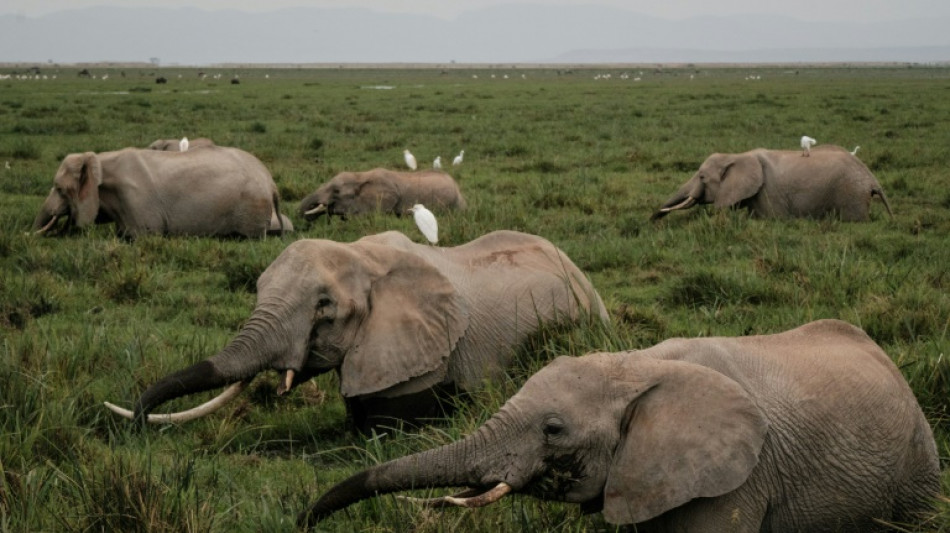
-
 Former Olympic champion Sharpe suffers heavy halfpipe crash
Former Olympic champion Sharpe suffers heavy halfpipe crash
-
Belarus says US failed to issue visas for 'Board of Peace' meeting

-
 Forest boss Pereira makes perfect start with Fenerbahce rout in Europa play-offs
Forest boss Pereira makes perfect start with Fenerbahce rout in Europa play-offs
-
Alcaraz fights back to book last four berth in Qatar

-
 England captain Itoje warns of 'corrosive' social media after abuse of Ireland's Edogbo
England captain Itoje warns of 'corrosive' social media after abuse of Ireland's Edogbo
-
War-weary Sudanese celebrate as Ramadan returns to Khartoum

-
 Townsend expects recalled Scotland duo to shine in Six Nations clash with Wales
Townsend expects recalled Scotland duo to shine in Six Nations clash with Wales
-
Peru's new president under fire for child sex comments
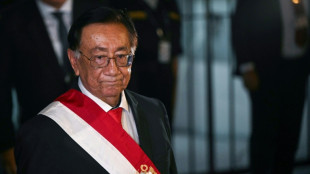
-
 UK king opens London fashion week despite brother's arrest
UK king opens London fashion week despite brother's arrest
-
Belarus frees opposition politician Statkevich

-
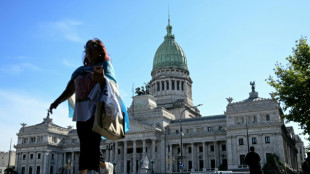 Striking Argentine workers slow down Buenos Aires in protest over labor reforms
Striking Argentine workers slow down Buenos Aires in protest over labor reforms
-
Starlink loss a blow to Russian forces in Ukraine: experts
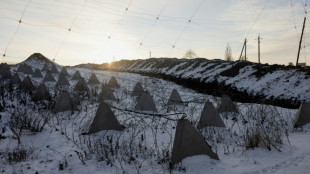
-
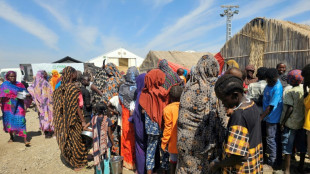 UN's Sudan probe finds 'hallmarks of genocide' in El-Fasher
UN's Sudan probe finds 'hallmarks of genocide' in El-Fasher
-
Belarus frees opposition politician Statkevich: wife

-
 Rocket re-entry pollution measured in atmosphere for first time
Rocket re-entry pollution measured in atmosphere for first time
-
Airbus ready to build two new European fighters if countries want

-
 Canada makes push to attract skilled migrants, including for defence
Canada makes push to attract skilled migrants, including for defence
-
US threatens to leave IEA if net zero focus remains
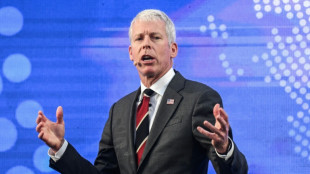
-
 Walmart outlines big AI ambitions as it reports mixed results
Walmart outlines big AI ambitions as it reports mixed results
-
Trump kicks off his 'Board of Peace,' as war clouds loom on Iran
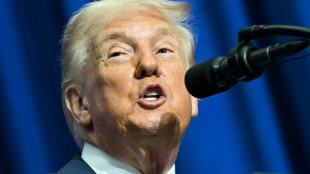
-
 UK pubs to stay open late if home nations reach World Cup knockouts
UK pubs to stay open late if home nations reach World Cup knockouts
-
TotalEnergies in high-stakes French trial over climate change

-
 Bosnia probes fascist salutes at Croatian singer's concert
Bosnia probes fascist salutes at Croatian singer's concert
-
US and Israel issue dire warnings to Iran alongside US military buildup

-
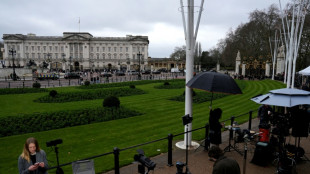 British public cheer Andrew's arrest with a smile and relief
British public cheer Andrew's arrest with a smile and relief
-
Argentine workers go on strike to protest Milei's labor reforms
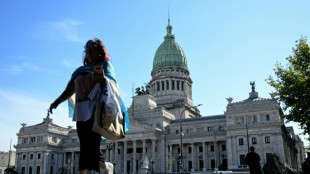
-
 Nakai targets Olympic skating upset as 'skimo' makes debut
Nakai targets Olympic skating upset as 'skimo' makes debut
-
What we know about ex-prince Andrew's friendship with Epstein

-
 US trade deficit in goods widens to new record in 2025
US trade deficit in goods widens to new record in 2025
-
Oil extends gains on US-Iran tensions, stocks retreat

-
 Williams 'on the back foot' after missing Barcelona: Albon
Williams 'on the back foot' after missing Barcelona: Albon
-
Real Madrid submit evidence to UEFA in Vinicius racism probe

-
 Olympics rev up Milan's renewal but locals fear price to pay
Olympics rev up Milan's renewal but locals fear price to pay
-
Cardona Coll, Fatton win Olympic-debuting ski mountaineering sprint golds

-
 MSF will keep operating in Gaza 'as long as we can': mission head
MSF will keep operating in Gaza 'as long as we can': mission head
-
Russian Filippov wins first medal at Milan-Cortina Games for individual neutral athletes

-
 Italian Milan takes sprint honours at UAE Tour
Italian Milan takes sprint honours at UAE Tour
-
Dozens killed in jihadist attacks in northwest Nigeria

-
 Zimbabwe unbeaten in T20 World Cup after six-wicket Sri Lanka win
Zimbabwe unbeaten in T20 World Cup after six-wicket Sri Lanka win
-
Postecoglou admits taking Nottingham Forest post a 'bad decision'

-
 Switzerland's Fatton wins women's ski mountaineering sprint on Olympic debut
Switzerland's Fatton wins women's ski mountaineering sprint on Olympic debut
-
Kinghorn, Van der Merwe return for Scotland against Six Nations strugglers Wales

-
 Repsol says could boost Venezuela oil output over 50% in 12 months
Repsol says could boost Venezuela oil output over 50% in 12 months
-
UN says Israeli actions raise 'ethnic cleansing' fears in West Bank, Gaza

-
 Arteta tells faltering leaders Arsenal to harness Wolves 'pain' against Spurs
Arteta tells faltering leaders Arsenal to harness Wolves 'pain' against Spurs
-
Crowley gets nod for Irish as Prendergast drops out

-
 Unbeaten Swiss to meet Great Britain in Olympic men's curling semis
Unbeaten Swiss to meet Great Britain in Olympic men's curling semis
-
UK police arrest ex-prince Andrew on suspicion of misconduct

-
 Oil extends gains on US-Iran tensions, Europe stocks slide
Oil extends gains on US-Iran tensions, Europe stocks slide
-
Former prince Andrew, a historic downfall


Kenyan pilot project to put price on nature's treasure
The bird count gets underway -- two members of the superb starling family, a Nubian woodpecker, and so on.
The census unfolding in the shadow of Mount Kilimanjaro is part of a project with a dual aim -- using biodiversity to make money, which will then help to preserve natural resources and support local communities.
The 5,000-hectare (12,400-acre) terrain on the edge of Amboseli National Park in southern Kenya boasts elephants, giraffes, antelopes and lions.
The reserve's owners are the Maasai people, and no fence separates the land from territory used by herders for their cows, sheep, goats and donkeys.
These days, well-heeled visitors are returning to the reserve after the Covid-19 pandemic, which had wrenching financial consequences.
"Tourism completely collapsed, and we realised that we need to find other ways of rising revenue and income to be able to continue paying the leases," said Mohanjeet Brar, managing director of tour operator Gamewatchers Safaris, which rents Selenkay from the Maasai.
The reserve has an eye on the potential from carbon credits and planned biodiversity credits -- mechanisms designed to channel funds to landowners who preserve natural hotspots for rare species and carbon storage.
- Data first -
For Selenkay, the first step towards realising these gains is to collect data -- to make an inventory of the reserve's treasure house.
Cameras and acoustic recorders are being used to give an idea of which animals are present on the reserve and in what numbers, and these are supplemented by human observations.
Over one month, morning and evening, team members are stationed at specific points to make a tally of all the animals seen and heard for 10 minutes.
"Is biodiversity higher in the conservancy than outside the conservancy and what's driving that increase?" said Andrew Davies, an assistant professor at Harvard University in the United States, who is helping the research.
"Once we know that from a scientific perspective, we can begin thinking about making a credit to sell."
Helped by a drone, the researchers are also getting a picture of the amount of carbon stored in trees and in the soil.
Tourism income from Brar's company supports the local community in many ways, helping to provide water for people and livestock and generating jobs. All of the rangers and almost all of Selenkay's staff are Maasai.
Even so, living conditions are still difficult, said Noolasho Keteko, one of the women from the Maasai village bordering the conservancy.
The crop-haired mother of eight, adorned with colourful bead jewellery, also makes money from tourist visits to the mud-hut village and from selling jewellery.
But when Selenkay closes in April and May for the rainy season, the village needs assistance, she explained.
People in the district want to prevent the land from being sold, turned into fields and fenced off, preventing wildlife from moving freely.
But a short distance from the reserve, a high fence already crosses the landscape to make way for fields.
Income from credits could ease the pressure on the environment, said one of the guides, Nicholas Koyieyo.
It would encourage herders to cut back on numbers of cattle, enabling grass and trees to regenerate, he said.
- Market question -
The big question is whether Selenkay's resources can be adequately monetised.
"Kenya has a very fast-growing population -- the land price is also high (and) there are many options for land use," Brar said.
The market for carbon credits is well-established, although far from perfect.
Under it, carbon polluters can offset their greenhouse-gas emissions by "purchasing" emissions that are reduced or saved by other members in the scheme.
But the much-touted market for biodiversity credits has yet to be created.
On Sunday, preparatory talks for a UN biodiversity summit due in December wound up in Nairobi after making scant progress.
"There's no biodiversity trading market and we have to develop that," said Davies.
"We need carbon as a first step to get the things going, to get trust from the landowners," he said.
"A lot of money needs to go back to the community, so if we start to get money and giving it to the community then they will have faith in us."
A.Rodriguezv--AMWN


